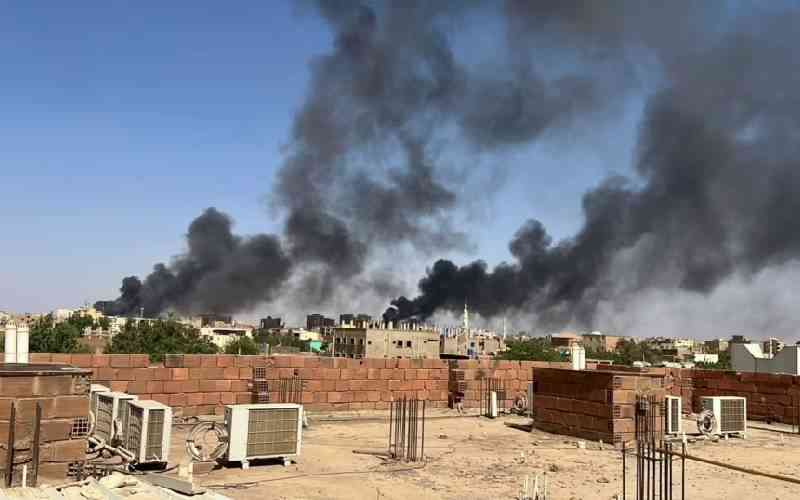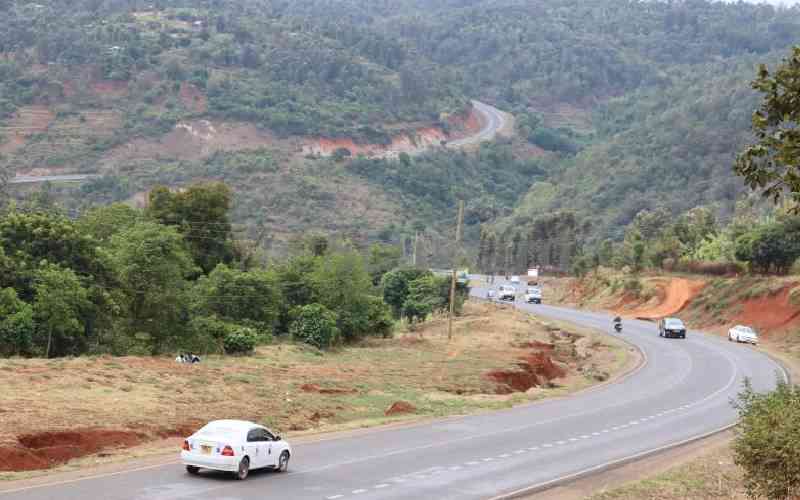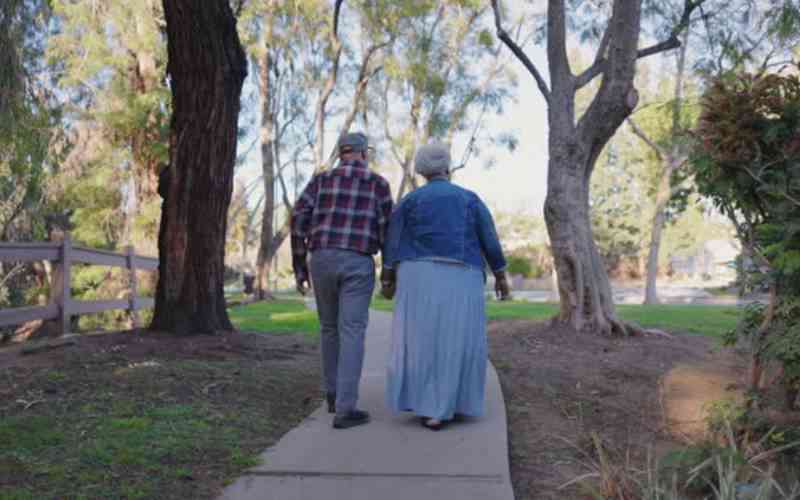
It is one of the most memorable songs, "Don't cry for me Argentina," composed by Andrew Webber and Tom Rice in 1976.
First sung by Julie Covington, it was redone by Madonna in a 1996 movie, Evita. It is a very emotional song if you pay attention to the message.
The song refers to Eva (Evita) Peron, wife to two-time Argentinian President Juan Peron.
In the song, the actor (Evita) urges Argentinians not to cry for her after her death. Probably she had the best of life and had no regrets.
She died at 33. Her body found its way to Italy and was buried in 1957. She was reburied in Argentina in 1976. Please listen to the song, it still has some wisdom. It has had 41 million views in four years.
The moving story of Evita rhymes with events in Sudan.
Juan Peron was Argentinian president in 1946-1955 and 1973-1974. He died in office and was replaced by his third wife Isabel Peron as the president. Isabel was deposed by the military in 1976 with civilian rule returning in 1983.
It's a question why Argentina hasn't built strong institutions after its independence in 1816. That early!
Sudan's political turmoil mirrors Argentina's without Evita. Sudan got her independence in 1956. It was ruled by Egypt and UK from 1899 to 1956. Sadly, the current crisis is not the first, it has had two civil wars; from 1955 to 1972 and another one from 1983-2005.
A clash of cultures like Islamisation, pre-colonial relationships among different tribes, foreign interference and lack of growth strategies have made the country fertile for conflicts.
Give credit where it's due, Kenya Vision 2030 gave us a national direction and superordinate goal. With partition in 2011, we thought Sudan would enjoy peace. Current events seem to suggest we were wrong.
The political issues are deeper than the north-south divide or Islam against Christians or oil. Sudan is a country of contradictions.
I visited Sudan in 2013 and from the airport to the hotel felt something was amiss. It felt like a country frozen in time and prospects.
Beyond high temperatures and a slow economy, and finding yourself alone in a hotel, the taxi drivers and other ordinary Sudanese were bitter. They felt stuck in a country with no economic prospects.
External powers
I was a victim of the economic crisis; I found myself with 500 Sudanese pounds after the trip that I could not exchange back at the airport. I gave it to a Sudanese student in my class.
Fissures divide this country. Religions, tribes, races, oil wealth and external interests. Do you recall Osama bin Laden once lived there?
Who buys Sudanese oil? Who funds the wars? Which external powers have interests in Sudan? They include the United States after delisting Sudan as a supporter of terrorism. China and Russia have interests based on oil, gold and other minerals.
Add the protection of their strategic interests in Africa. How many live wires from Sudan extend to the Arab world? A coup in 2019 and another in 2021 left Sudan politically unstable with a spillover into the economy.
Over 66 years since her independence, Sudan has not gelled into a nation. Tribal and religious feelings run deep. Too much focus on primary commodities such as oil left no growth, oil curse seems to have taken over.
The programme of Arabisation made non-Arabs bitter. When I visited there, my presentation had to be translated into Arabic, not English.
Sudan has lots of tribes and bitter feelings persist just like in most African countries. It is easy to ignite them.
It's sad that the Sudanese economy has stagnated despite its strategic location; between north and south, east and west and different climatic zones.
Her long history, River Nile and pyramids should be bringing tourists and their dollars. Yet Sudan got only 864,169 tourists in 2021 while Egypt got eight million (CEIC, 2023).
Remember after partition three-quarters of the oil was left in South Sudan. The political crisis in Sudan clearly has economic roots.
How do we sort the Sudan problem that was not sorted by partition? Did the military come to sort out what civilians could not? Sudan needs our support to outgrow military rule.
She has the resources to do that. The children of this country have cried enough. It is unlikely that ordinary men and women can sing like Evita loudly, "Do not cry for me Sudan."
Even generals cannot sing, going by the fighting between the Rapid Support Forces (RSF) paramilitary wing and the Sudanese army. How did the president and his deputy each end up having a military force under their command?
Prehistoric creatures
We cannot conclude without pointing out that our curriculum ignores our neighbours. Do our history and economics cover our neighbours? What do Kenyans know about chaos in Sudan, Ethiopia, Somalia, DR Congo, or peace in Tanzania?
Why do we know so much about early man like Zinjanthropus, Australopithecus and other hominoids when we know so little about modern man?
Why do we confront Form One students with doses of prehistoric creatures, not modern man? Curiously, they study CRE at the same time! Do Children in other countries such as UK or Japan study early man?
Yet we know so much about the West and East. We show off after visiting the UK, US, China, or other countries. Why not our neighbours, sources of trade and investment?
How many students from these neighbouring countries are in our universities, which are crying for students? Does charity not begin at home? Have you been to Sudan? How was your experience?
Finally, how did so many Sudanese make Karatina their home? Does it have to do with John Garang teaching at a nearby school sometime back?
 The Standard Group Plc is a multi-media organization with investments in media platforms spanning newspaper print
operations, television, radio broadcasting, digital and online services. The Standard Group is recognized as a
leading multi-media house in Kenya with a key influence in matters of national and international interest.
The Standard Group Plc is a multi-media organization with investments in media platforms spanning newspaper print
operations, television, radio broadcasting, digital and online services. The Standard Group is recognized as a
leading multi-media house in Kenya with a key influence in matters of national and international interest.











